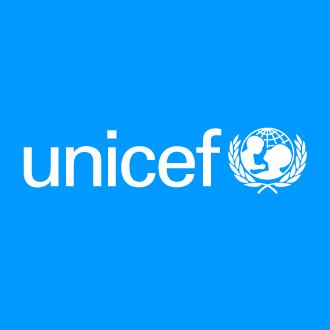The Deputy Governor of Gombe State, Manassah Daniel Jatau, expressed his gratitude to the United Nations Children’s Fund (UNICEF) for its numerous interventions in the North East subregion.
Speaking at the opening of the two-day North-East Nigeria Zonal Policy Dialogue on Social Budgeting for Child Sensitive Sectors in Gombe, Jatau praised the Bauchi Field Office for choosing Gombe as the venue for the event.
He highlighted the strategic location of Gombe, which is equidistant from the other five states in the region, and emphasized that the entire zone, and Nigeria as a whole, deeply appreciates UNICEF’s unwavering efforts and commitment to addressing children’s issues.
The Deputy Governor stated that over the years, Nigeria as a nation, the states, public and private institutions, Local Government Area Councils have been budgeting for the attainment of their goals or programs.
“Borrowing from economics and economists’ assertion of “other things being equal” a budget should comply with 50/20/30 rule. In essence your income should be shared in the proportion of 50% for your needs, 20% savings and 30% for your wants,” he added.
He however said that, “We are all aware of the reality on ground, as clearly manifested by our experience, events and happenings in our environment, which point to one fact all things are not equal now.”
Manassah stressed that, “Concerned individuals, scholars, international bodies have shown discomfort with the trend of things and feel that children have been always short changed or virtually everything we undertake.”
He also stated that, “Accordingly, UNICEF has called for a dialogue on this, with a view of not only addressing the issue but to reverse it.”
According to him, “Basically, Social Budgeting Child Sensitive Sectors is the planning, mobilization, allocation of resources, implementing and monitoring the utilization of these resources to ensure that children with or without specials needs are not denied their fundamental rights to education, health care, social protection, safety both physical and social-hunger, eating balanced diet to avoid stunted growth, and other unpleasant diseases associated with malnutrition.”
“Even though we are talking about the children, children and children, the challenge is actually on us the leaders. This is on account of the fact the children are not in a position to prepare budget for themselves.
“If properly comprehended, accepted and supported by political will the SOCIAL BUDGETING DIALOGUE, demands the increased public allocation and expenditure on and for children,” he added.
Manassah Jatau stressed that, “Specifically, there is the compelling need to explore for increased public allocation and expenditure in the North East geo-political zone of Nigeria and create a budget code for social protection in budgets at all levels and it must be linked to the Social Protection, Ministries, Departments and Agencies.”
He observed that daunting as the tasks are in view of the fact that “we are in troubled economy, we have no option, children are the foundation of adults.
“The weak the foundation, of course, we know the rest. Perhaps at this point let me pinpoint that “there is no organization without challenges.”
He stressed that, “It is the ability to overcome the challenges that differentiate an effective leader from an ineffective one” (Jatau 2010).
“One favourable wind on our side is that this dialogue came at the time we are at verge of preparing our budgets in the various states, for the forthcoming year 2025.”
The Deputy Governor added, “Similarly, I wish to appreciate the “actors” Honourable Commissioners, Permanent Secretaries and others supporting in the line Ministries of Budget and Economic Planning, Agriculture, Health, Education, Women Affairs and those in charge of security issues for coming to share your knowledge, experience and challenges for the benefit of our dear zone.”
He appealed that,”Please, ensure that this dialogue comes up with relevant, responsive, implementable and adaptable solutions that will stand the test of time, integrity, transparency and any sort of sentiments.”
In his welcome remarks, Gombe State Commissioner, Ministry of Budget and Economic Planning, Alh Salihu Baba Alkali stated that the purpose of the dialogue was to collectively chart a path to adequate and sustainable financing of the social sector at the Federal and State levels in Nigeria.
He also stated that the dialogue is aimed to provide an opportunity to generate ideas and share challenges and recommendations ahead of the forthcoming high-level National Policy Dialogue under the auspices of Network of Commissioners of Budget and Finance.
He added that in addition, the policy dialogue will help explore how states’ budget processes can lead to better budget outcomes and improved service delivery in the social sector.
“We are gathered here today to deliberate on social sector budgeting that will help explore how the states’ budget process can lead to better budget outcomes and improved service delivery in these sub-sectors (Health, Education, Women Affairs) etc.
“I trust, you will agree with me, that given the issues to be discussed, this dialogue is very timely,” he added.
Salihu Alkali added, “The effort you see today a is collaboration between Gombe State Government and UNICEF Bauchi D Field Office in order to ensure the success of the North-East dialogue and to harness inputs from diverse stakeholder’s and to also exchange views on the pathway towards achieving annual increase in budgetary allocation to the social sector by at least 2 – 3%, which will increase releases and utilisation.
“It is our hope that this dialogue can play a major role in the development of our region.”
The dialogue was organised with support by UNICEF for the Six States of Adamawa, Bauchi, Borno, Gombe, Taraba and Yobe which Commissioners and Permanent Secretaries of Budget and Economic Planning, Education, Women Affairs and Accountants – General are attending as well as Media Practitioners.
